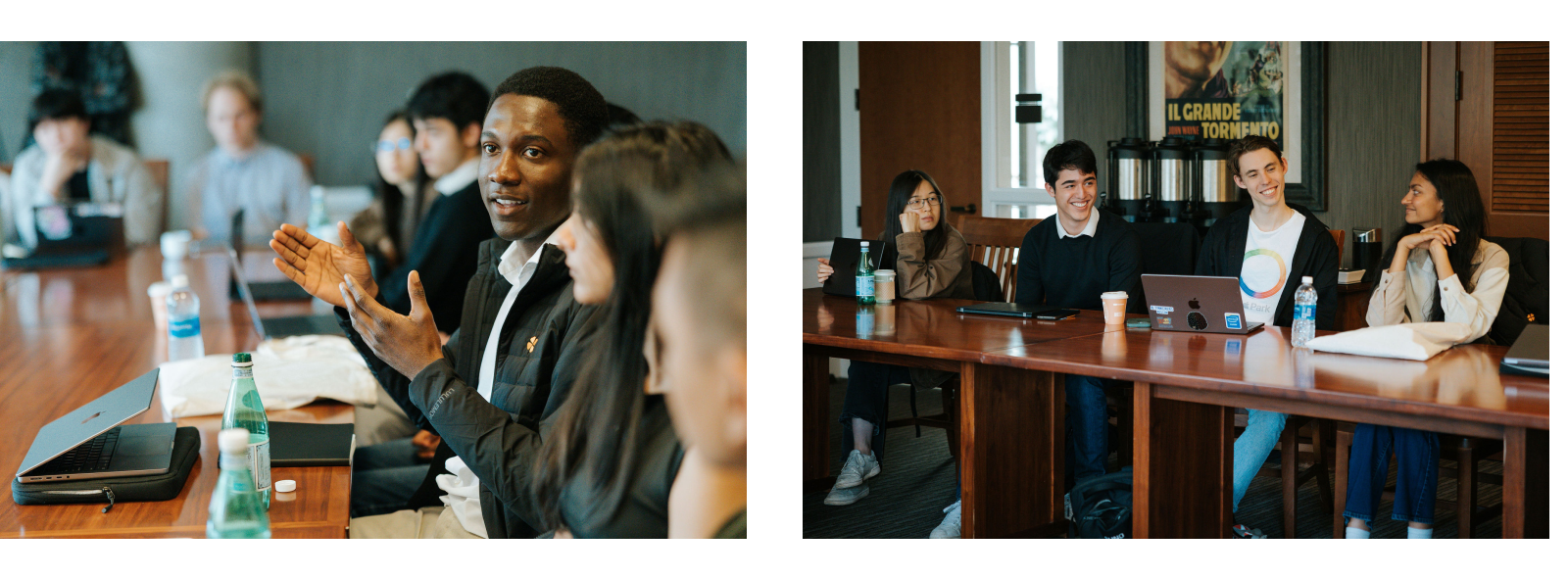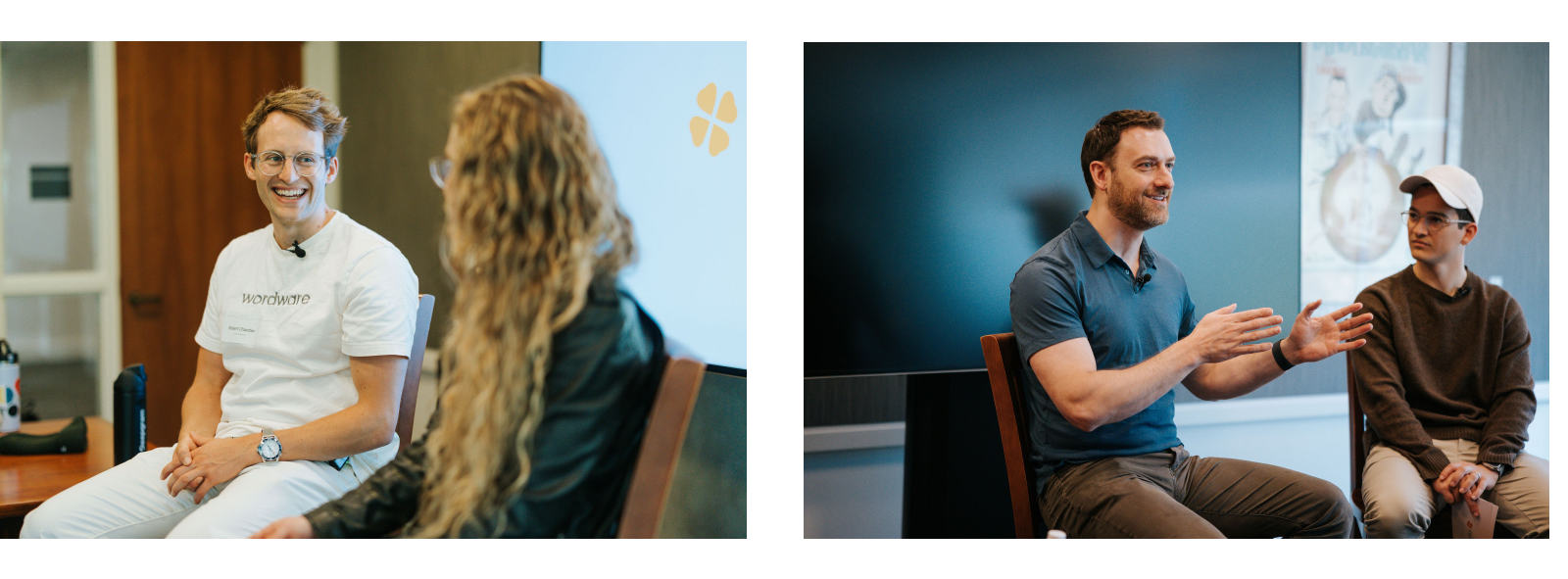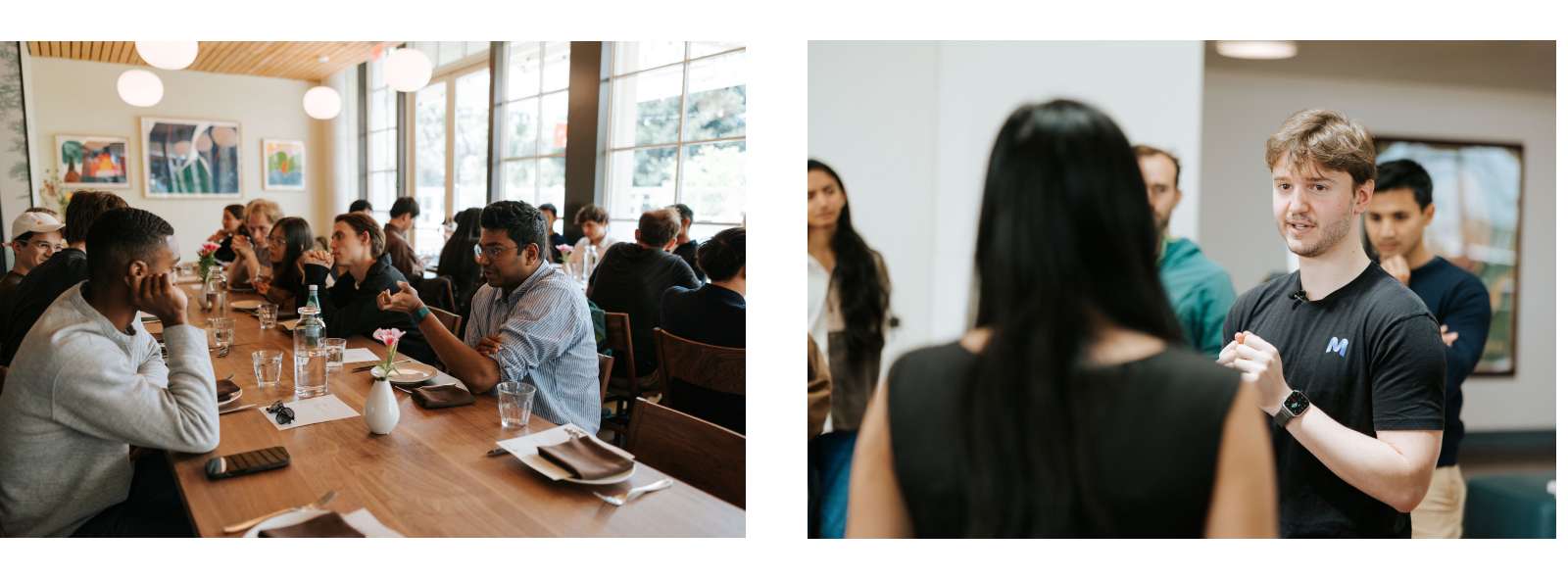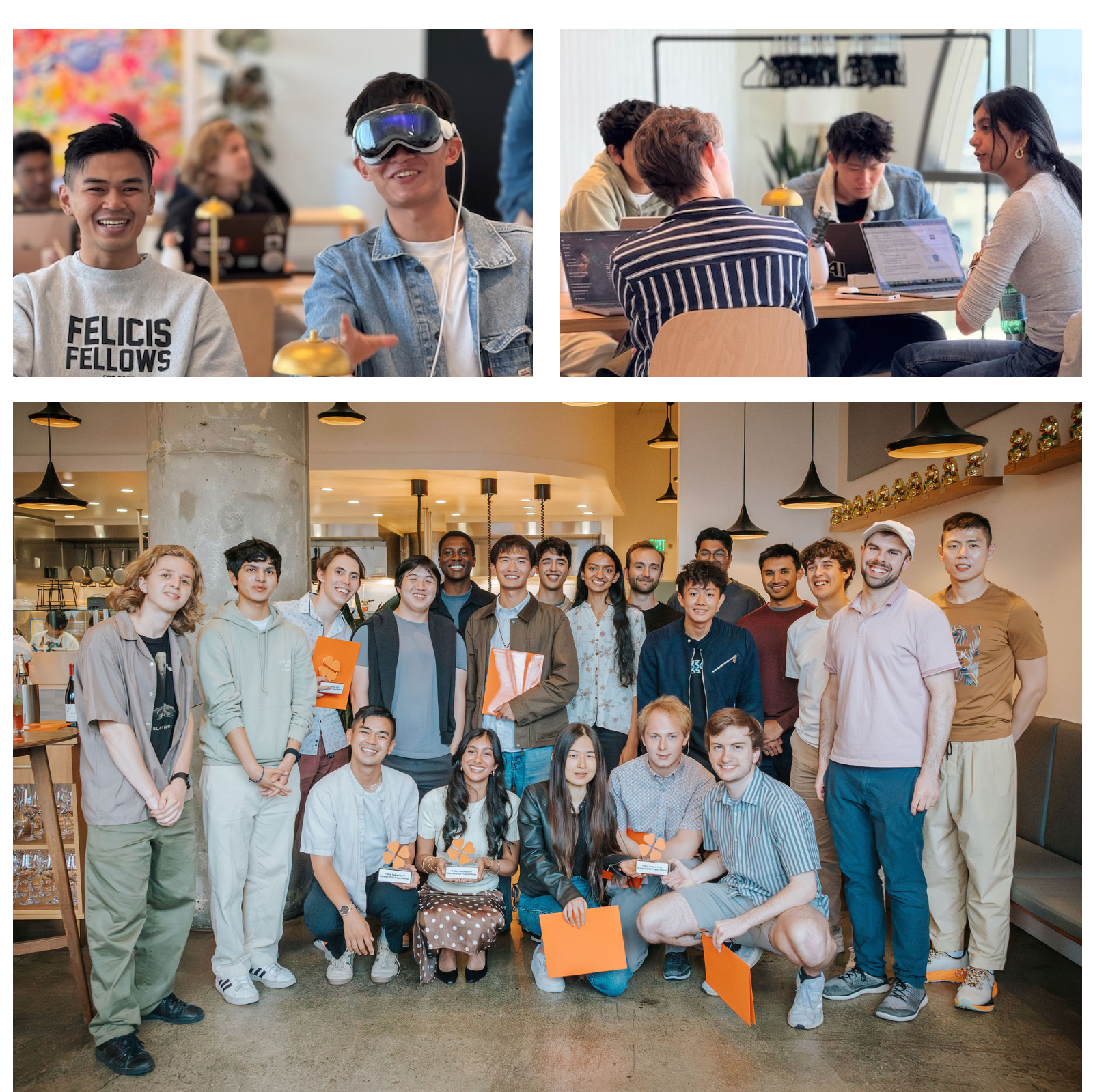The Era of the AI Researcher-Founder
AI Researchers Get a Blueprint for Building the Next Billion-Dollar Company
AI research is booming.
Since 2010, the number of AI-relevant bachelor’s degrees awarded in the US has more than doubled. The number of Master’s degrees increased by 71% from 2010 to 2022, and the number of PhDs grew by 48% since 2010. 1
This is happening not only as the demand for AI talent is growing, but also as AI funding is increasing rapidly. According to Pitchbook, in 2024, a third of global VC investment went to AI startups. For North America, the number is over 45%.
We’re seeing such impressive talent in machine learning programs, but these students often lack access to firsthand learning about company building. This is exactly why we started the Felicis Fellows program.
We want to expose the best machine learning students to the world of entrepreneurship. It was our second year running the program, and we feel fortunate and grateful to the fellows and founders who participated, making it a truly memorable week.
Students from Top Programs
This year’s cohort comprised 20 students from Carnegie Mellon University, Harvard, MIT, Princeton, Stanford, UC Berkeley, and UC San Diego. Fellows had research backgrounds in several diverse fields, including AI evals, AI guardrails, legacy programming languages, physics, mathematics, and cancer research. Rohini Banerjee of CMU said she was eager to join Fellows to “learn from people who have gone from research land to the startup world and how they took their ideas into something marketable and commercialized.”

Rohini and the other fellows had a full week in San Francisco, immersed in startups. They participated in informal Q&As with some of the top AI founders today, including Ari Morcos of Datology, Brendan Foody of Mercor, Charles Packer of Letta, Marc Freed-Finnegan of Chalk, Matan Grinberg of Factory, Mike Knoop of Ndea, Zapier, and ARC Prize, and Robert Chandler of Wordware.

“You get to share the room with some really interesting founders with just a few other people,” said Uche Ochuba of Stanford, “It’s a rare opportunity to ask them questions, probe, and learn about what they're working on.”
The week also featured fun activities, including an SF Giants baseball game, bowling, and great meals with enlightening conversations. Uche also emphasized the intellectual value of the discussions he had with other fellows throughout the week. “This was a really good opportunity to meet people from other institutions across the country, get their perspectives, and bounce ideas off of them.”
From AI Researcher to Founder
Before Ari Morcos was a founder, he was a researcher. He studied neuroscience and machine learning at Harvard, then went on to work at DeepMind and later at Meta’s FAIR lab. It was at Meta that he became absorbed by the idea of curating high-quality data to accelerate and improve model training. This kernel developed into Datology, which he co-founded in late 2023. Nowadays, when Ari often finds himself talking to researchers like the fellows, he advises them to consider going “straight to industry because you have so much more opportunity and resources, and it’s where the hardest stuff is typically happening.”
In addition to hearing about their journeys to becoming founders, fellows heard accounts of the kinds of challenges they might face when building a company. Subjects included opportunities within RL environments and AI evals, talking to customers and creating something they want, the importance of having a proprietary data feedback loop, how to handle sudden viral success, and so much more.

“Now is the perfect time to be an AI researcher and be seriously thinking about starting a company,” said Charles Packer, CEO and co-founder of Letta who spun research on AI memory into a company coming out of Berkeley. Charles also discussed the role of open source in his company’s origins and the latest developments in agentic AI. He even shared a demo of how to use Letta as an operating system for agents.
When the subject turned to building AGI, Mike Knoop, Co-founder of Ndea, Zapier, and ARC Prize, was emphatic: “I can't think of anything more important to work on.” He left the Fellows inspired with the message that small teams can have an outsized technical impact. “You don't need these multi-billion-dollar budgets in order to make an algorithmic or architectural breakthrough. And that's what's missing.”
Build Day
At the end of the week, the fellows took part in a day-and-a-half hackathon. This meant building and presenting an idea and a prototype to a roomful of judges. For the fellows, this was intended to simulate an investor pitch, providing them with an opportunity to apply what they’d learned during the week and receive feedback on their idea and delivery. In just over 24 hours, the fellows built and pitched 13 projects, competing for over $200,000 in prize money.
Here were the hackathon winning projects:
- 1st Prize ($100K): The “internet for robotics” - John So (Stanford) and Matthew Lee (Stanford)
- 2nd Prize ($75K): A fully automated AI real estate fund - James Campbell (CMU), Emiliano Garcia-Lopez (CMU), Yunzhi Zhang (Stanford)
- 3rd Prize ($50K): A platform to analyze melanomas - Rohini Banerjee (CMU)
- 4th Prize ($25K): AI to help with alien communication - Artem Lukoianov (MIT)

The talent displayed by the fellows truly blew us away. Personally, I find it incredibly exhilarating to support the start of the professional journeys of these bright minds. I’m convinced this group will become the next set of trail-blazing entrepreneurs and AI innovators, and their energy is contagious. We backed up this belief by offering to invest in teams should they decide to start companies based on their ideas. It was inspiring to see everyone devote a week to blending rigorous research with real-world impact, present their ideas boldly, and demonstrate the kind of hustle and grit that will carry them far in their careers.
How to Get Involved
Felicis Fellows has become a vibrant community. We now have two incredible cohorts and amazing partners, from the founders who speak to the fellows, to the companies that provide resources to them, like access to compute (thank you to AWS, OpenAI, and Deep Infra for your support!).
But none of this would be possible without the wonderful universities we’ve worked with to help fellows understand the ins and outs of building a company. I’m incredibly proud of this year’s program and even more excited for what we’ll achieve next.
If you’d like to get involved, please reach out to us at fellows@felicis.com.
1 The White House AI Talent Report.

.png)

